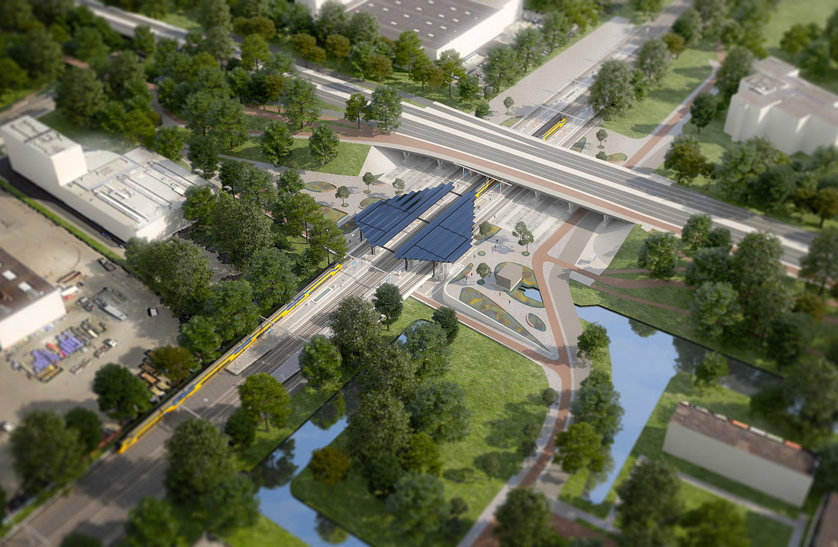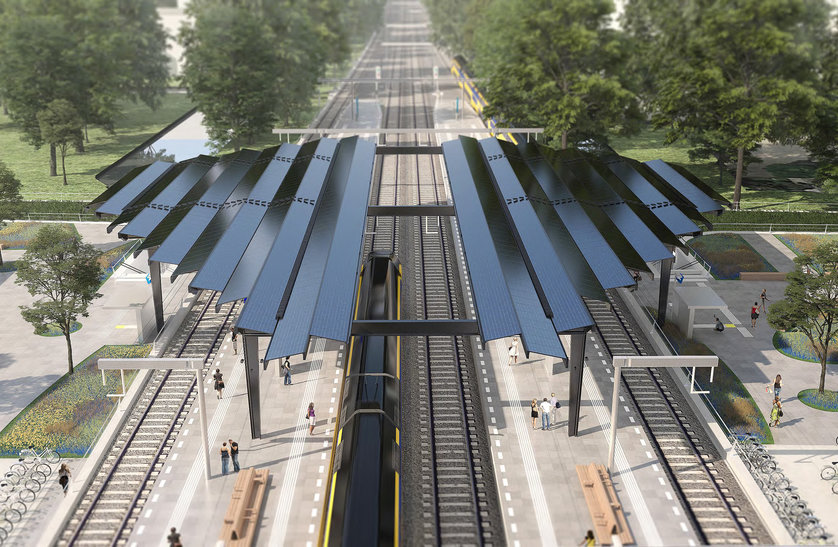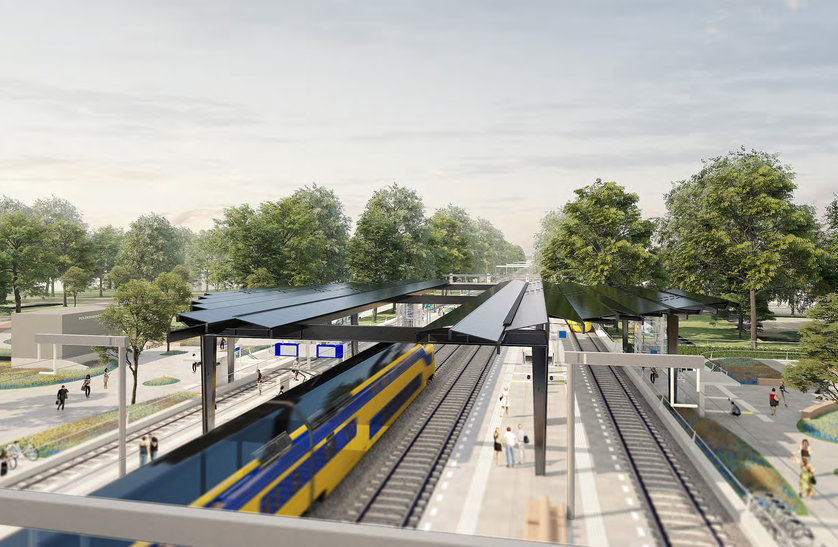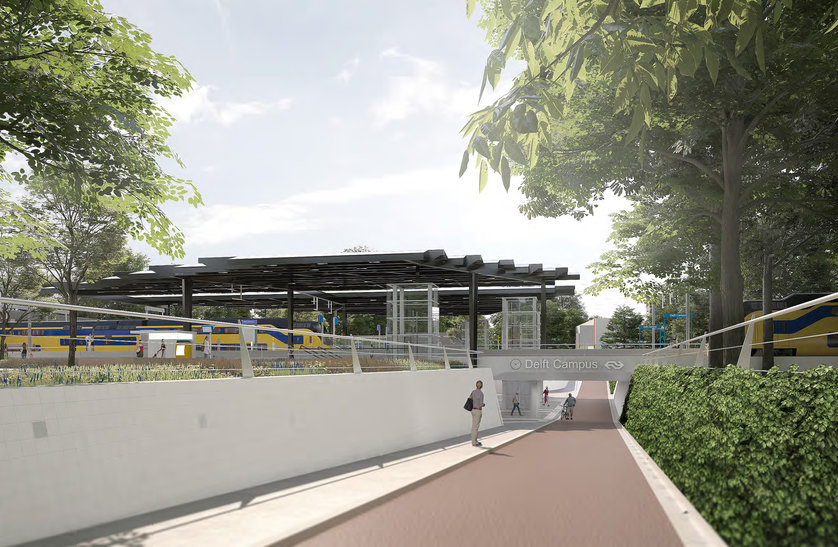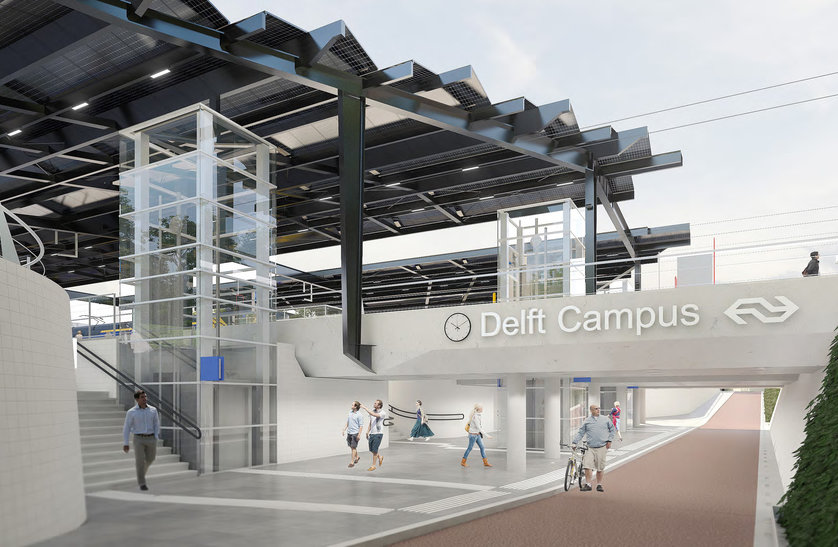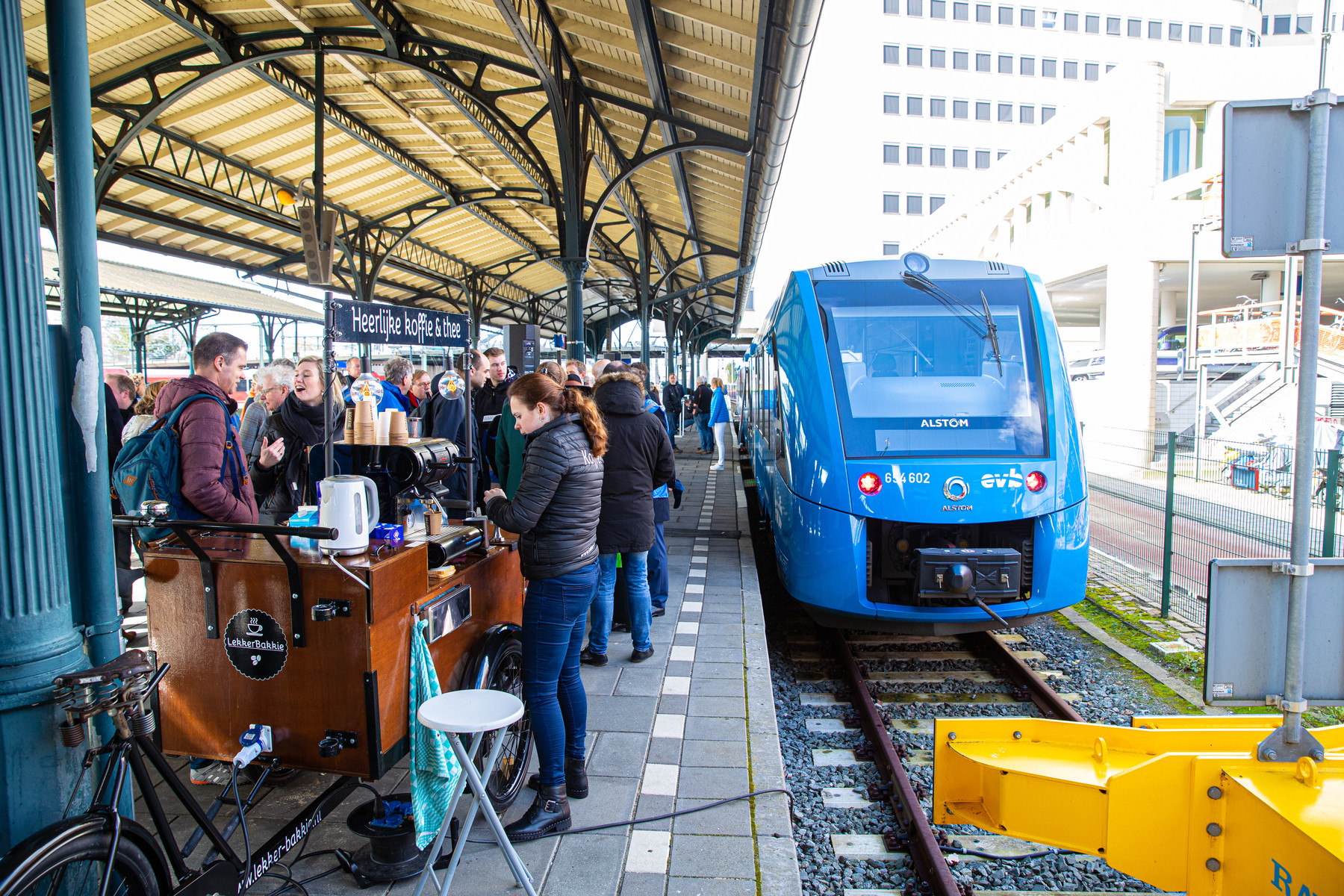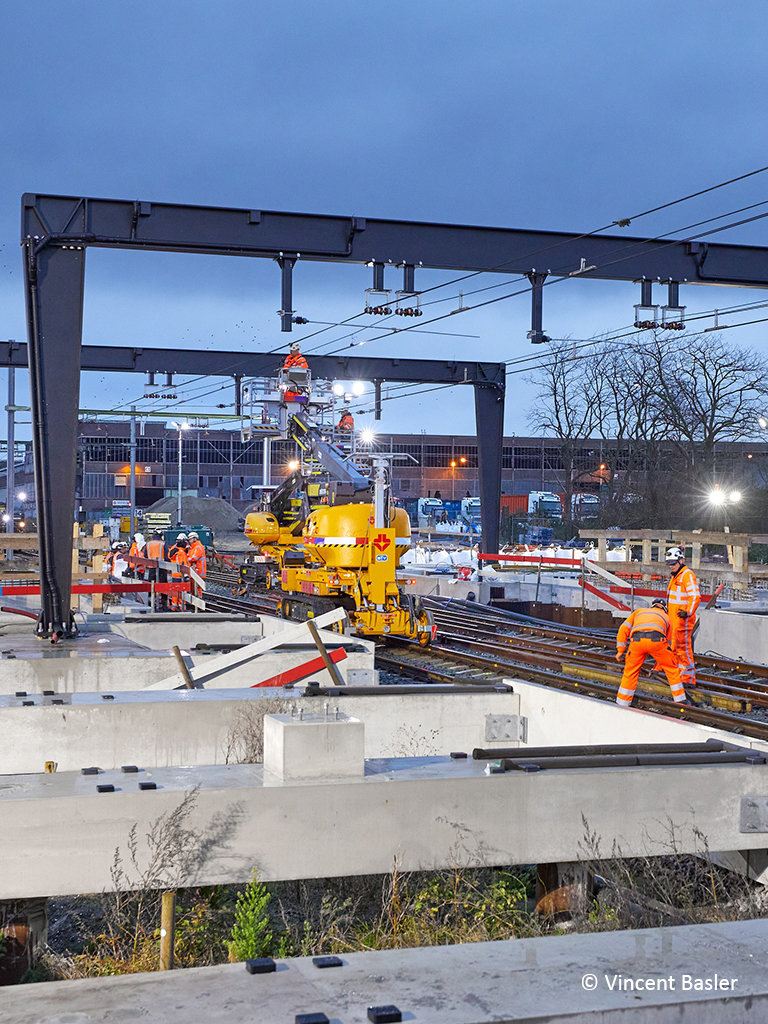
In need of technological paradigm shifts
ProRail focuses on automation, digitisation and sustainability
Text by: Jurjen Slump - photography by Vincent Basler
ProRail is facing some major challenges. In response, the Dutch railway infrastructure manager is investing in new digital technologies, such as artificial intelligence and advanced IoT applications. Because of this, ProRail has significantly changed the way it is collaborating with TU Delft. Director of Innovation & Technological Renewal Karel van Gils and R&D programme manager Arjen Zoeteman explain why. “With existing technology, it’s impossible to run more trains after 2030.”
Of course, the quality of the railway network in the Netherlands is indisputable, especially by international standards. It’s one of the world’s most heavily used networks and has high levels of reliability. But despite this, “we’re reaching the limits of the system,” says Van Gils. “Much of our technology still dates back to the 1960s.” Even in work processes, full advantage is not yet being taken of the potential benefits of digitization.
Railway Engineering
Traditionally, ProRail has worked closely with the Railway Engineering research group (Civil Engineering). This group has world-leading expertise when it comes to so-called rolling contact fatigue, the wear and tear caused by contact between the wheel and the track. Even the high-speed line to Brussels is currently encountering problems with this. To facilitate collaboration with other specializations within TU Delft, the university is in the process of establishing the interdisciplinary Railway Institute (Railinstituut).
Thanks to the cross-faculty Railway Institute, we can benefit from whole new worlds within TU Delft.
Arjen Zoeteman , Senior Program Manager - Research at ProRail
In order to enable long-term growth, several ‘technological paradigms shifts’ will be needed: running more trains, driverless trains and far-reaching digitization, both in terms of the technology and the work processes. That means involving a host of other faculties. “Thanks to the cross-faculty Railway Institute, we can benefit from whole new worlds within TU Delft,” says Zoeteman.
Smart sensors for predictive maintenance
Autonomous trains can ride more closely together. Combined with smart rail traffic management, this enables you to increase capacity. Other promising innovations: robots for maintenance work. Smart sensors linked to the internet of things (IoT) that signal when a railway switch needs to be replaced. Drones that conduct inspections. With advanced AI, it also becomes much easier to predict maintenance, reducing the number of disruptions.
Running much more trains will increase the strain on existing embankments. This requires R&D as well. “We have 7,000 km of track. If you want to check every millimetre for cracks, a smart approach is needed,” explains Van Gils.
Climate adaptation
There are also external factors. The ground is changing because of climate change. Combined with an increase in the number of trains, this can cause problems. Fundamental research is needed in order to understand what exactly is happening in the ground. The increase in the number of trains also causes ‘track vibrations’, which can be disruptive for local residents. “That’s an incredibly difficult subject,” says Zoeteman. “As we don’t know how to manage these vibrations in the ground, we’re joining forces with various knowledge partners.”
Finally, ProRail also aims to improve the sustainability of operations: this involves research into hydrogen trains replacing polluting diesel locomotives (see box 'Successful test of hydrogen train' below) and the use of circular materials in such structures as fly-overs. “We aim to operate more sustainably, by reusing energy,” says Zoeteman. “That automatically leads you into different domains than traditional rail engineering.”
The great thing is that students and PhD candidates not only have the opportunity to do an important AI track, it also enables them to have an immediate impact on society. You’re playing a part in the complete digitisation and sustainability upgrade of public transport.
Karel van Gils, Director of Innovation & Technological Renewal at ProRai
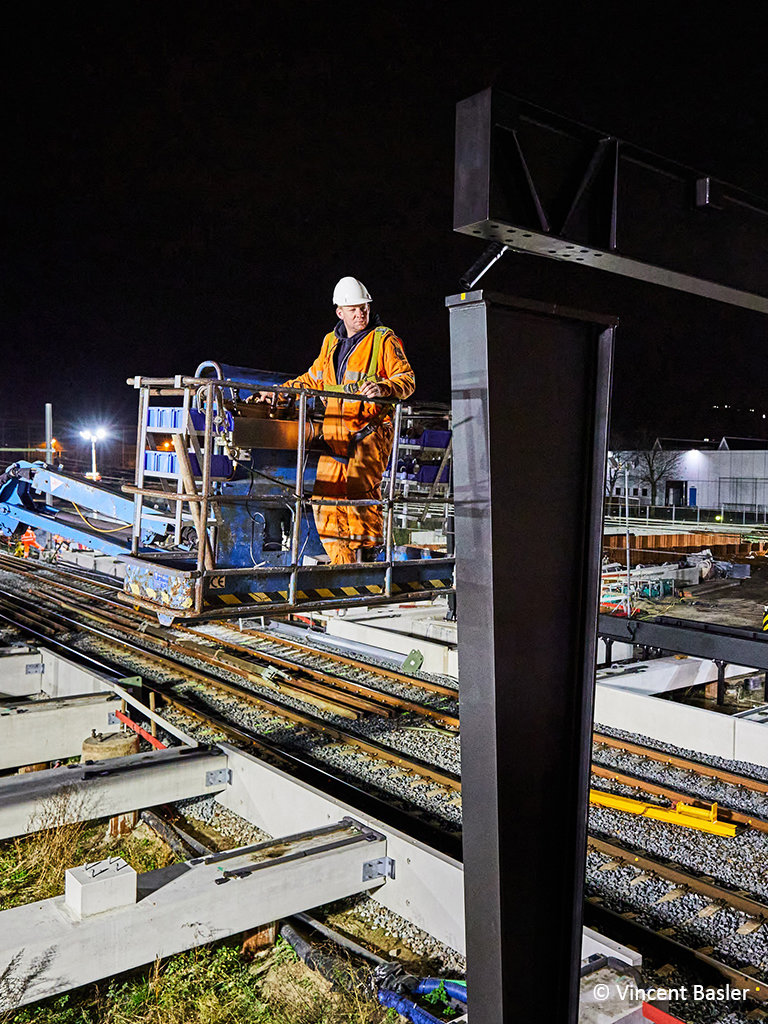
Delft Campus station
A good example of this ambition is the development of Delft Campus station, set to become the Netherlands’ first energy-neutral station. Lifts, LED lighting and ticket machines are just some of the things on the station that will be fully powered by energy from an innovative roof, made up completely of solar panels. “I consider ProRail to be one of the biggest commissioning authorities in the country,” says Van Gils. “It’s our responsibility to build sustainably.”
The new institute has an important role to play in technological renewal, but attracting talent is equally important. For years, ProRail has been funding the chair in Railway Engineering. Van Gils hopes that collaboration with other disciplines will spark enthusiasm for the rail sector among students in other faculties as well.
Hyperloop
This is why ProRail also sponsors the TU Delft Hyperloop team. They were previously given permission to test one of the empty tubes in the Delft railway tunnel. ProRail sees the Hyperloop as a potential solution for the longer term. “It’s not currently a priority, but we support the initiative,” says Zoeteman. “We have a lot of heavy-rail knowledge at our disposal, which we’re eager to share. That means that the Hyperloop team don’t have to invent it all from scratch.”
Successful test of hydrogen train
This year saw a first on the Dutch railways as ProRail successfully tested a hydrogen train. On the route between Groningen and Leeuwarden, a sprinter and express train service was run several times, demonstrating that this innovative train can be accommodated within the service.
Hydrogen trains can serve as alternatives for the diesel trains that run on 1,000 km of the 7,000 km of track without overhead wires. With green hydrogen, that kind of train is not only more sustainable than diesel, it’s also significantly quieter.
Photo by Stefan Verkerk
